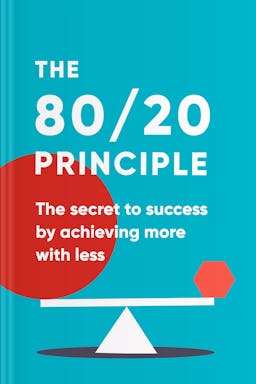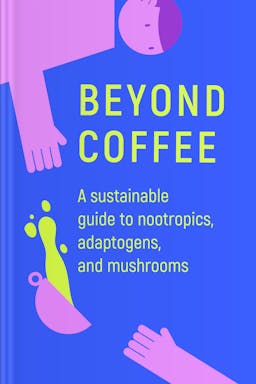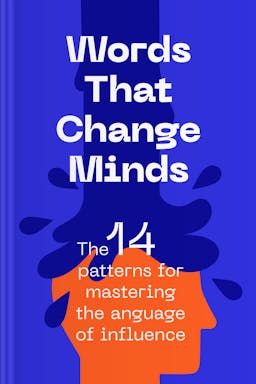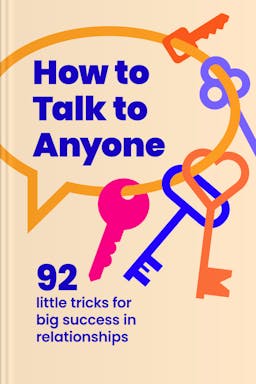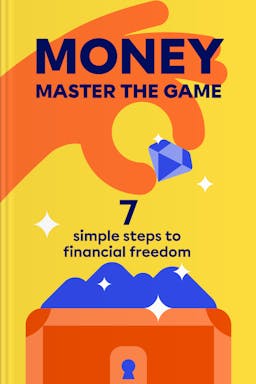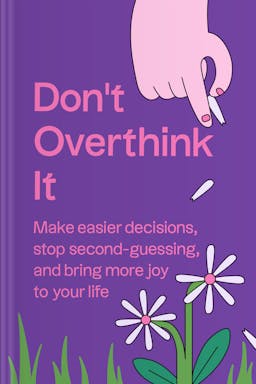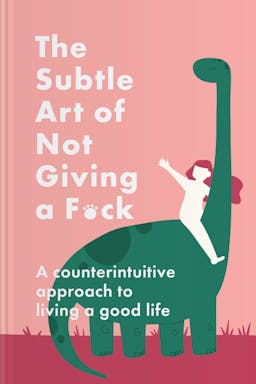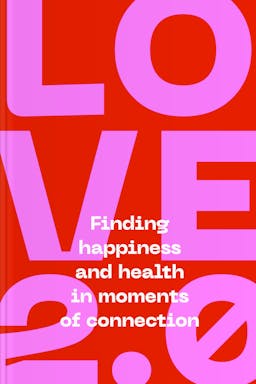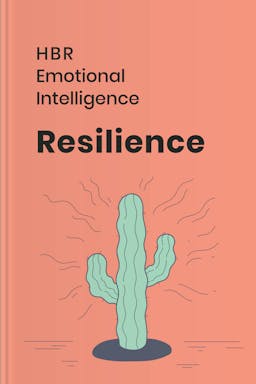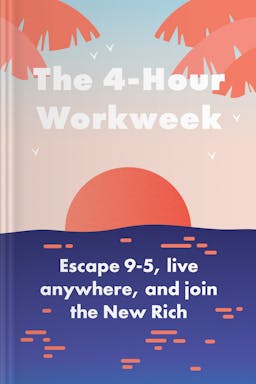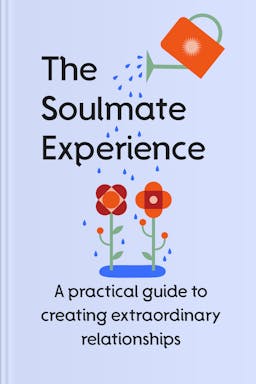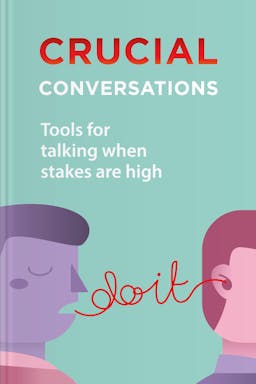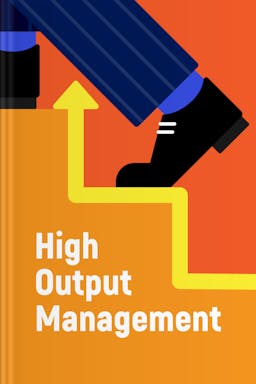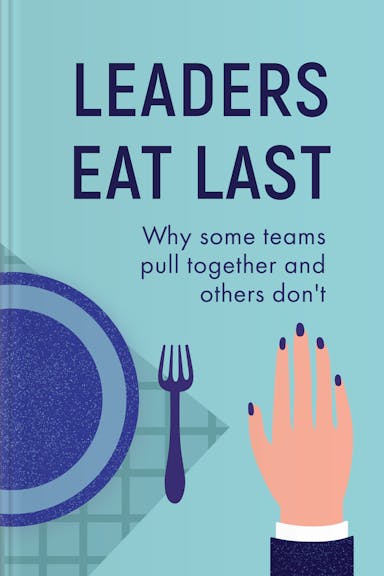
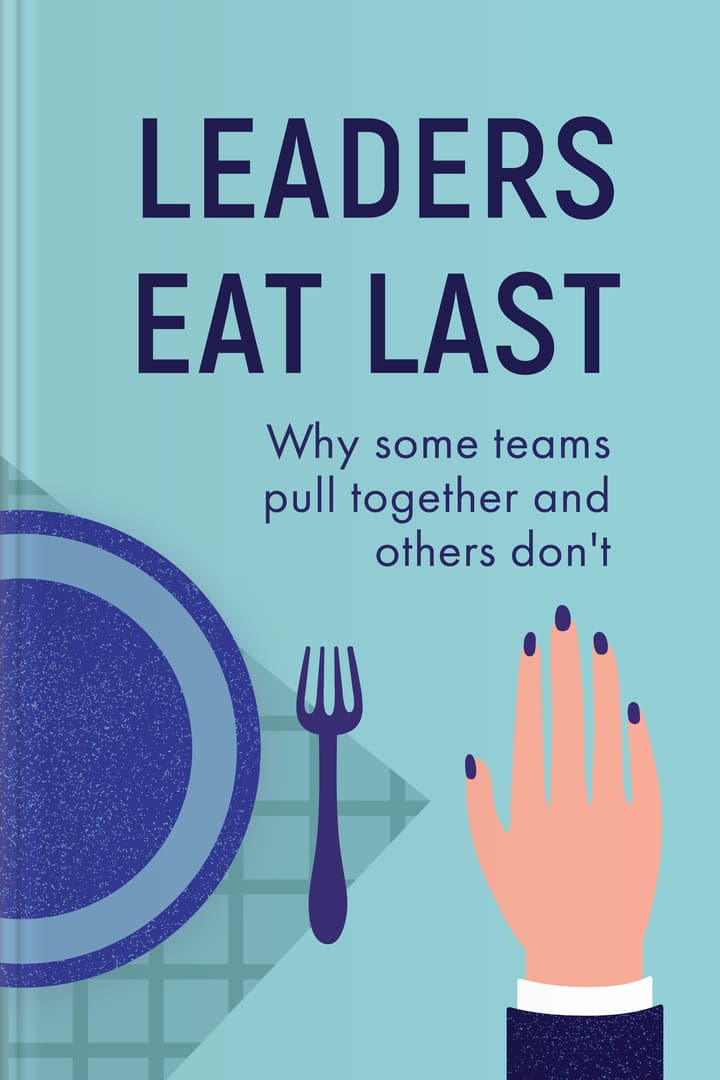
Summary of Leaders Eat Last
Short summary
You’ll learn
- How group safety can ignite performance
- What shapes the culture of winning teams
- Why compassion relies on responsibility
- The power of serving over leading
Table of content
- Summary of Leaders Eat Last
- About the author
- What is Leaders Eat Last about?
- Who should read Leaders Eat Last
- Topics in Leaders Eat Last
When people have to manage dangers from inside the organization, the organization itself becomes less able to face the dangers from outside
Empathy is what drives great leaders to do the things they do. Most folks want to be recognized when they pull off heroic acts but people like Johnny Bravo have a culture of sacrifice and service which makes them see themselves as just pieces of a much bigger puzzle. The knowledge that others would do the same for you is what drives most people to give their best and even risk their lives for the good of the organizations that they work for.
Leaders must learn to provide cover from above and the people on the ground must look out for each other if any organization hopes to become exceptional. Recognize that employees are human too and listen to them. Your employees will work without coercion and work together to advance the company when they feel valued.{2} Truly human leadership protects an organization from the internal rivalries that can shatter the culture of trust and cooperation. Returning from work feeling inspired, safe, fulfilled and grateful is a natural human right to which we are all entitled and not a modern luxury that only a few lucky ones are able to find.
Leaders should be responsible for the lives of their employees

Misery may love company, but it is the companies that love misery that suffer the most
A sense of community and certain chemicals are the forces that drive most of our actions and feelings
When leaders eat last, they are repaid with loyalty and hard work
Trust is like lubrication. It reduces friction and creates conditions much more conducive to performance
Too many of the environments in which we work today frustrate our natural inclinations to trust and cooperate
The cycle of abstraction endemic to our brand of capitalism is easily seen when we take a broader view of Milgram’s experiment
Businesses need to hold themselves to a higher moral standard rather than just trying to spot loopholes in the rules and evade responsibility
In a weak culture, we veer away from doing “the right thing” in favor of doing “the thing that’s right for me”
Customers will never love a company until the employees love it first
Leadership is about taking responsibility for lives and not numbers
For over seventy-five years, Alcoholics Anonymous (AA) has successfully helped people beat the dopamine addiction of alcoholism
It is not the work we remember with fondness, but the camaraderie, how the group came together to get things done
Conclusion
What is Leaders Eat Last about?
Who should read Leaders Eat Last
Topics in Leaders Eat Last


Enjoy summarized nonfiction bestsellers
Grasp the book’s key ideas in less than 15 minutes
Get startedGet new knowledge easily
Let’s check how many titles you can finish in a month with Headway! Tell us how much time you’d like to spend on reading:
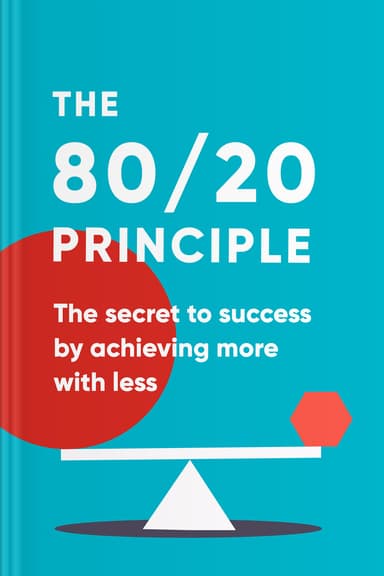
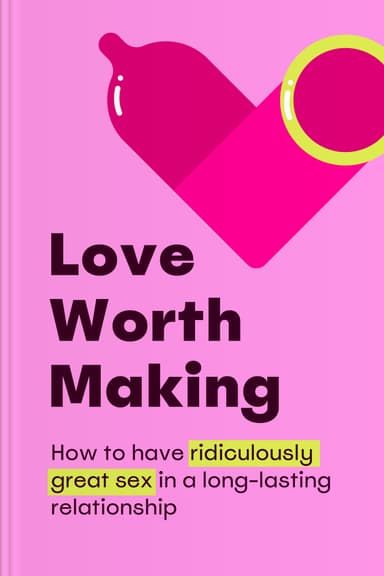
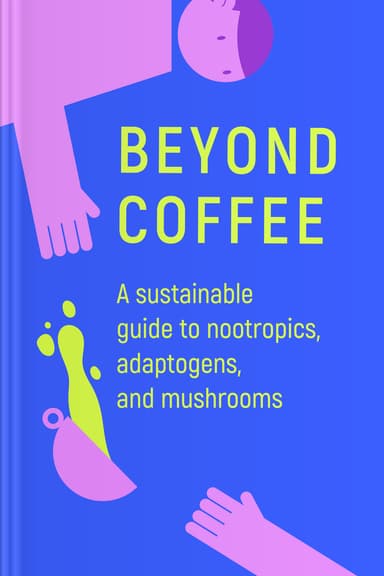
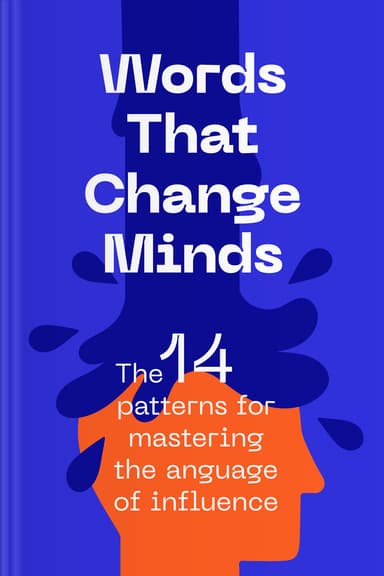
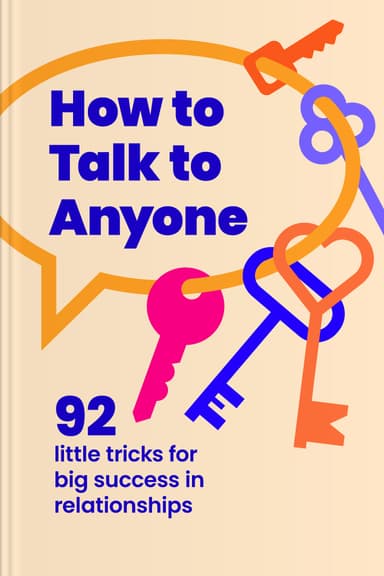
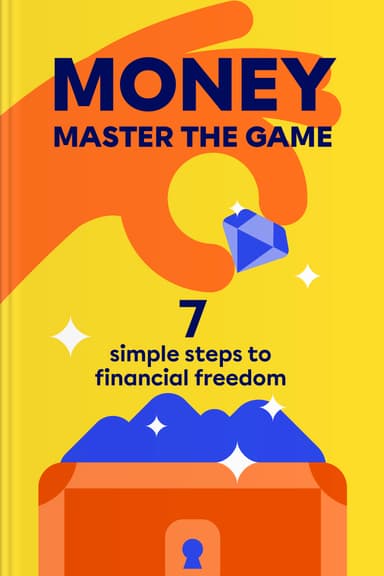
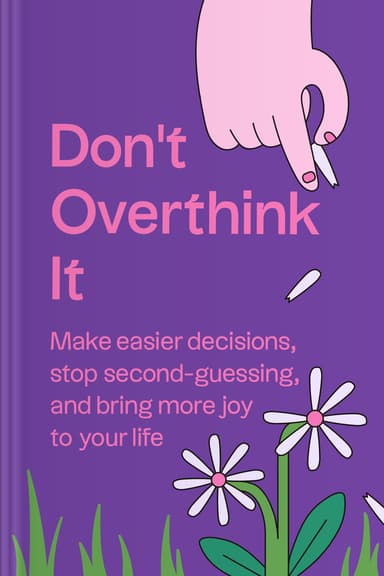
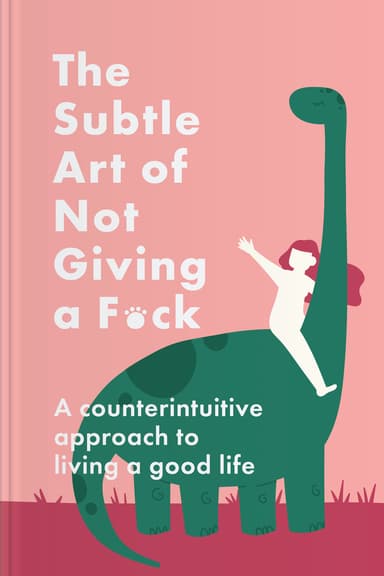
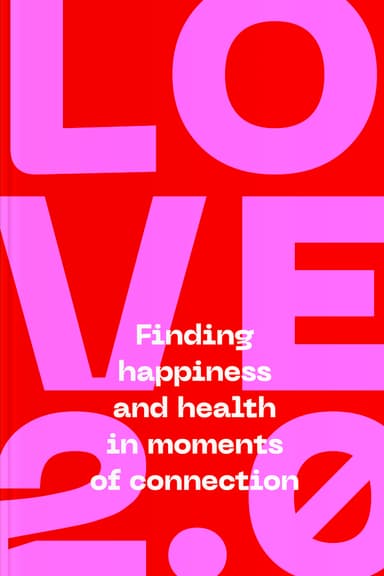
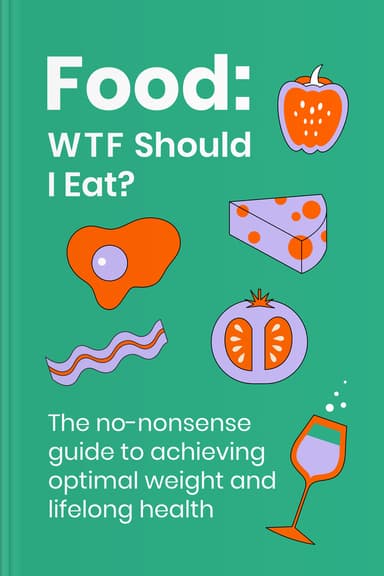

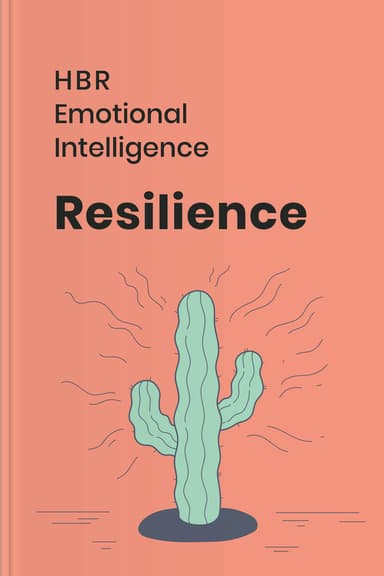
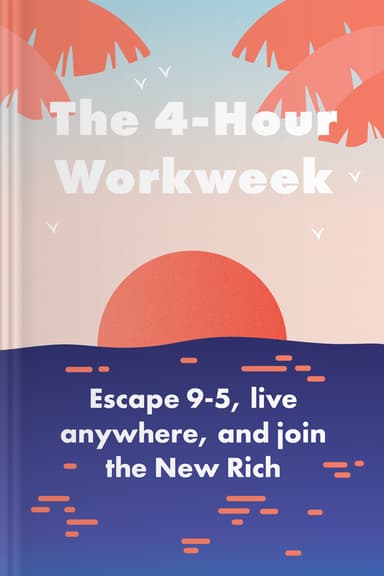
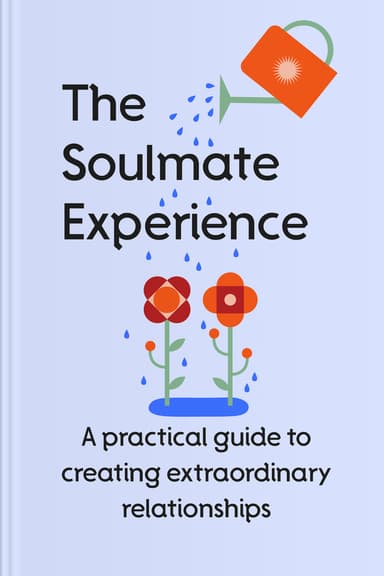
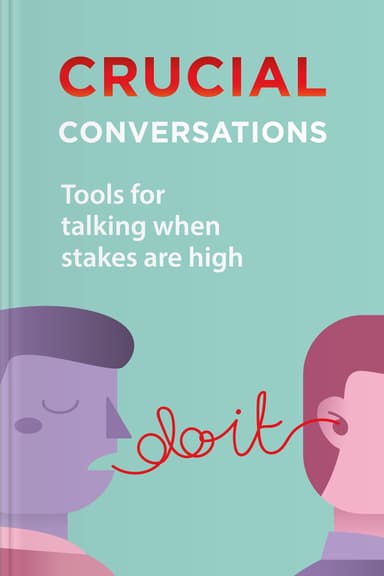

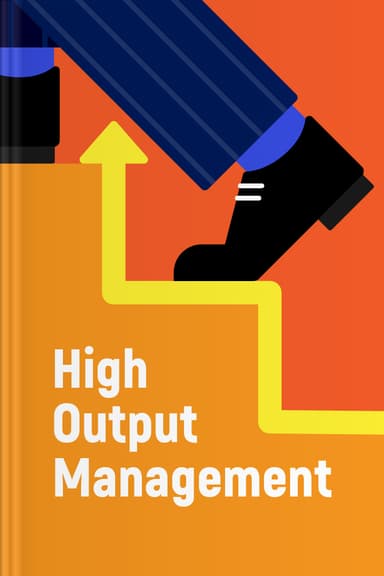
Join 30+ million learners around the world
Everything you need to be motivate, to learn & to self improves is all here. I actually do appreciate the reminders because otherwise this wouldn’t work for me. Thank you
Headway is the answer! No longer accumulating books I never read. With Headway, I initially chose the areas important to me such as productivity, time management, etc., and each day I'm provided several book summaries from which I devote 20 minutes or more each day reading. All of this on my phone! My life has improved with Headway. Truly my most useful app.
An excellent concept, executed well. Headway can help you retain what you've read while introducing you to the essential core of new information. It's an easier way to stay inspired, and to be reminded of the mental tools you've learned
In today’s world, we rarely have time. Between our jobs, our families are social obligations, when do we have time to grow and develop ourselves? Headway is an excellent app that gives you that time it gives you those little snippets of information that you need to direct your focus in on your life. Headway gives you a chance to find out the meat of a book that you might want to purchase and read or listen to in-depth without wasting a lot of time trying to figure out is this book for me? I highly recommend the app.
The selections are on point and the summaries are excellent! I listen while I walk my pup 🐶 and have in turn, ordered a few selections! REALLY loving the app, it’s layout, daily selections and features!
I've gotten multiple books out of the library with the intent to read them, but always have a hard time finding the time. This app has helped me finally be able to get to them. Summarized, yes, and thank goodness too! Just short enough I can finish one on my way picking kids up from school/practice, or while I'm cooking dinner. I can't wait to listen to them over the summer when we visit the beach!
It amazed me! There is the possibility to highlight the most important points of each book and instantly translate unfamiliar vocabulary. With the ability to review the searched words. It's a great way to learn more about English as well. The price is great.
I’m enjoying what I’m learning on headway.each summary comes with quotes at the end which you can save to help you remember key points. You can listen or read, I’ve found that reading puts me to sleep before I can finish but the listening feature keeps me engaged and I can finish in a brief amount of time if not one session.
The app it’s so easy to use. I use it while driving or cooking and is great. I love the fact that the chapters are short, so you can finish them quickly. Very knowledgeable.
The best app for self development.It helps to keep pace with your reading and also suggests the kind of reading material you might like.It is fun as you can switch from reading to listening and vice-versa as per your convenience .Just get started and partake of the treasure of knowledge at your fingertips .I feel lucky to have spotted the app.It has helped me become self-disciplined and much better informed.The audio track is excellent.
Exactly what I need! I always have booklist to read, but can't committed enough to finish/start bc of too much pages. Headway is really helpful and concise with their summary. What I love the most is that the essence of the book is well crafted, so I don't only read the key points, but also there's the story and how personality of the author still well shown through the summary. Well done!
This is outstanding best app ever and honestly whoever came up with is my app is an absolute genius kudos my gratitude definitely goes out and I’m only on my first week free trial and I’m certainly going to purchase this app annually. Now that I have it, I can’t even imagine living without it.












